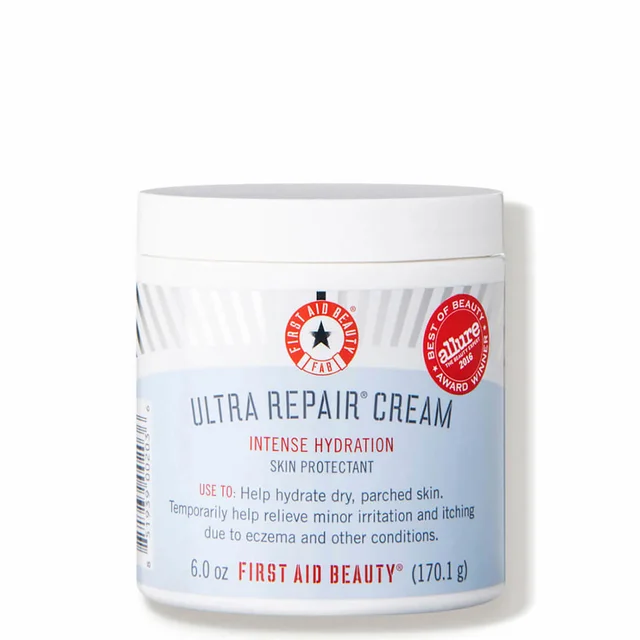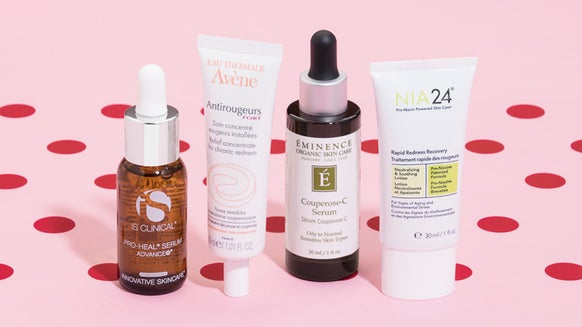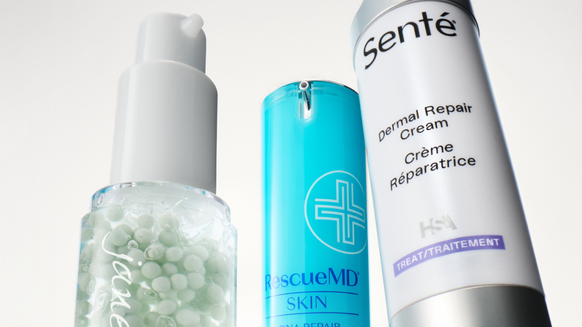What Dermatologists Want You to Know About Psoriasis
According to the American Academy of Dermatology, nearly 7.5 million people suffer from the autoimmune skin condition called psoriasis. This life-lasting condition produces not only painful outbreaks, but can also take a hit to your self-confidence. However, with help from your dermatologist and some over-the-counter, natural treatments, this condition can be manageable, allowing you to live a happy and beautiful life.
Since August is Psoriasis Awareness Month, these top experts share their insights on this more-common-than-you-think condition, along with their best advice for sufferers:
What Is Psoriasis?
Unlike some other common skin conditions, like eczema, psoriasis is autoimmune, meaning it’s caused by antibodies that are produced against substances that are naturally present in your body, according to Dr. Kally Papantoniou, MD, FAAD, a board-certified dermatologist. Having psoriasis means that certain cells are causing rough, scaly patches to appear throughout your body. Specifically, "T" cells, which are supposed to help to fight infection, cause inflammation, leading to an excessive growth of skin cells. You might be more at risk for psoriasis if someone in your family has been diagnosed, since researchers have found a genetic link.
Though the severity can depend on the patient, Dr. Papantoniou adds that certain environmental factors, like stress, anxiety, certain medications (including lithium, antimalarials, quindine and indomethacin) and an infection from a scrape or a wound can trigger a breakout.
While psoriasis doesn’t lead to certain health conditions (or vice versa!), you are at a greater risk than someone who doesn’t have this autoimmune disease. Dr. Papantoniou says 30 percent of psoriasis sufferers will develop psoriatic arthritis in their lifetime and also have the potential to develop type-2 diabetes, cardiovascular disease, high blood pressure or cholesterol levels, Crohn’s disease, ulcerative colitis and depression. When are you most likely to contract psoriasis, you ask? Dr. Papantoniou explains it can happen at any age, with an equal split in occurrence between men and women.
If you have an inkling you might be at risk, it’s important to keep an eye out for the symptoms, which include:
What Does Psoriasis Look Like
Symptom 1: Nail Pits
Before you schedule your next manicure, give a quick glance to your nail beds. While you’ll likely see some unruly cuticles, if you notice any small indents, make sure to bring it up to your dermatologist at your next appointment. Dr. Papantoniou says up to 45 percent of cases of psoriasis will present pinhead-sized depressions in nails.
Symptom 2: Scaly patches or rough plaques
As the most common symptom of psoriasis and referred to professionally as "psoriasis vulgaris"---these breakouts often make their appearance on extensor surfaces, like your elbows, according to Dr. Papantoniou. These spots can be severely itchy, so we recommend consulting with your dermatologist to find a solution.
Symptom 3: Red patches
Consider the places on your body where your skin rubs together: your thighs, your fingers, your armpits. These areas are "intertriginous locations," and Dr. Papantoniou notes that if soft, smooth, pink-to-red patches occur in these spots without going away, raise concern with your dermatologist. This symptom is often misdiagnosed, she adds, but can be a key indicator of psoriasis.
How to Treat Psoriasis
While you should definitely consult your dermatologist if you have any or all of the symptoms above, there are some over-the-counter and natural remedies available, too.
1. Use a topical cortisone cream
Much like when you got a bug bite or stepped in poison ivy as a kid, cortisone cream will help relieve the itchiness of the psoriasis breakouts when applied directly to the infected area. While it will take time to heal, you can at least save yourself from scratching away at a scab, which can create a painful and potentially scarring mark.
2. Use a tar or salicylic acid–based shampoo
Unfortunately, since psoriasis can occur anywhere on your body at any given time, you might experience a scalp breakout. You can imagine how uncomfortable an itchy scalp might feel, so Dr. Papantoniou suggests buying a tar or salicylic acid–based shampoo formula.
Try:DHS Tar Shampoo
3. Use a gentle moisturizer
When selecting a facial cleanser or moisturizer, those who suffer from psoriasis should go as gentle as possible, especially since your skin is already sensitive. Maintaining a moisture regimen is key, since so many breakouts result in dry, flaky skin, according to Dr. Papantoniou.
Try: Avene TriXera + Selectiose Emollient Balm
4. Take vitamins
In addition to using effective products and adopting a healthy skin care routine, Dr. Papantoniou says arming your body with vitamins can help minimize outbreaks, too. She suggests a smart cocktail of vitamin D 5,000, a multivitamin and a turmeric supplement for optimal protection.
Try: Elon Matrix 5,000 Complete Multi-Vitamin
5. Use the sun
Though you want to be mindful of damaging rays, Dr. Papantoniou says that short bursts of sun exposure on lesions can help clear them. Make sure to apply sunscreen to ensure skin safety and give those breakouts a five- to ten-minute bake to supercharge the healing process.
Try: Blue Lizard Australian Sunscreen - Sensitive SPF 30+
6. Change your diet
Board certified dermatologist Dr. Carl Thornfield says your diet can also play a role in the onset of lesions, so eating healthy is essential. He recommends a low-glycemic and low-carbohydrate diet that focuses on anti-inflammatory foods, including leafy greens, olive oil, tomatoes, nuts and fruits.
7. Be consistent
Dr. Thornfield says the bottom line of psoriasis is figuring out what works specifically for your level of severity and your breakouts. Once you find the right mixture of creams, treatments and products, being dedicated to your individual treatment routine will help manage your specific skin condition.

From the latest hair and makeup trends to the best solutions for your skin issues, we've got all your beauty concerns covered!









